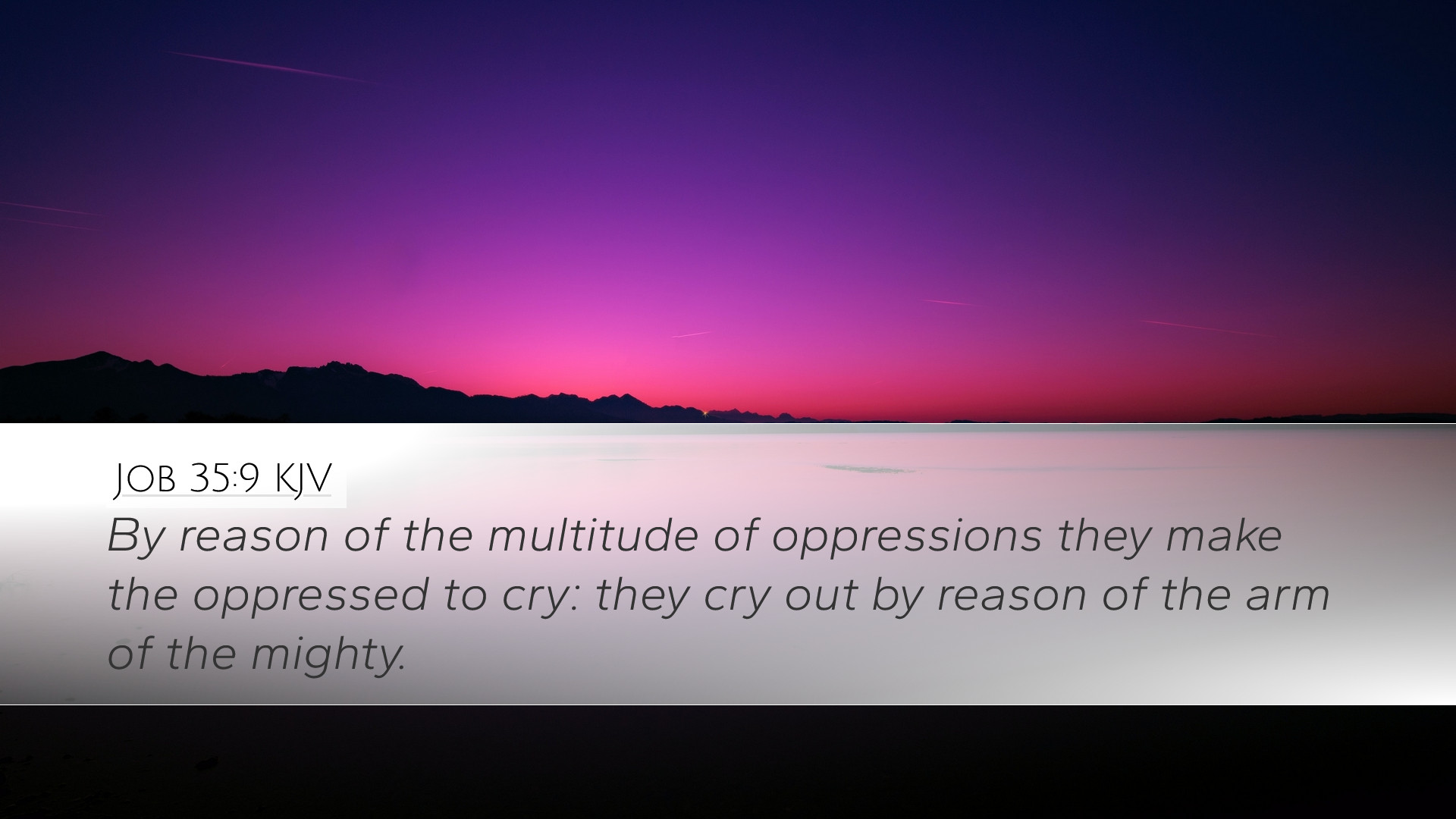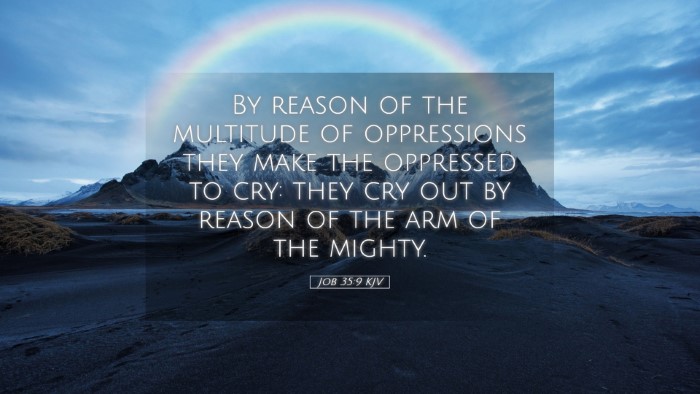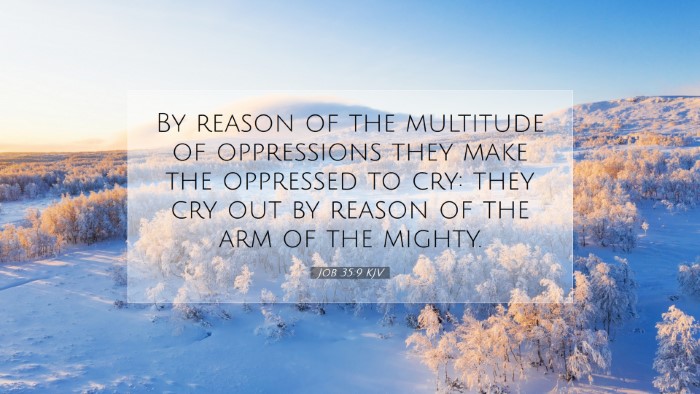Old Testament
Genesis Exodus Leviticus Numbers Deuteronomy Joshua Judges Ruth 1 Samuel 2 Samuel 1 Kings 2 Kings 1 Chronicles 2 Chronicles Ezra Nehemiah Esther Job Psalms Proverbs Ecclesiastes Song of Solomon Isaiah Jeremiah Lamentations Ezekiel Daniel Hosea Joel Amos Obadiah Jonah Micah Nahum Habakkuk Zephaniah Haggai Zechariah MalachiJob 35:9
Job 35:9 KJV
By reason of the multitude of oppressions they make the oppressed to cry: they cry out by reason of the arm of the mighty.
Job 35:9 Bible Commentary
Commentary on Job 35:9
Job 35:9 states, "By reason of the multitude of oppressions they make the oppressed to cry: they cry out by reason of the arm of the mighty." This verse opens a profound discourse on human suffering and the divine justice system as examined through the lens of Job's conversation with Elihu. Analyzing this verse requires an understanding of the themes of oppression and divine oversight that permeate Job's narrative.
Introduction to the Context
In this segment of the Book of Job, Elihu, a younger friend of Job, speaks, attempting to address both Job's distress and the overarching theme of God's sovereignty. Elihu's discourse provides critical insights into the struggles surrounding divine justice and human oppression.
The Nature of Oppression
Elihu's mention of a "multitude of oppressions" speaks to the pervasive reality of suffering that is experiential in humanity. Renowned commentator Matthew Henry suggests that this reflects not only physical oppression but also spiritual and emotional burdens that afflict the righteous. Elihu's assertion implies a systemic injustice where the "mighty" exert control over the vulnerable, evoking a comprehensive picture of human depravity.
The Oppressed Cry Out
Job 35:9 highlights the reactions of the oppressed. When they are subjected to relentless oppression, they cry out, indicating that pain often leads to a plea for relief. Albert Barnes elaborates on this notion, emphasizing that such cries may be directed towards God, seeking understanding and justice—a natural human response to suffering. This phrase captures the agony of those caught in the throes of injustice, compelling readers to reflect on the weight of suffering in our world.
The Role of the Mighty
The term "the mighty" brings to light those in positions of power. Adam Clarke delves deeply into the implications of this term, suggesting it can refer to the wealthy, the tyrants, or any individuals wielding sufficient authority to inflict harm. This perspective fosters a critical view of societal structures that allow for the marginalization of the weak. In doing so, Clarke provokes a theological inquiry into the responsibilities bestowed on the powerful.
Divine Justice in Context of Human Actions
Understanding Elihu's message involves a broader analysis of divine justice. Despite the oppression faced by many, Elihu emphasizes in subsequent verses that the Lord is not indifferent. Matthew Henry points out that though God may seem silent amidst oppression, He remains fully aware and will eventually address the cries of the afflicted. This brings forth the crucial theme that God’s apparent delay in justice does not denote His disregard or impotence.
Theological Reflections
As we reflect on Job 35:9, several theological themes emerge:
- The Problem of Evil: The existence of oppression raises essential questions about the nature of God and His justice. How can a just God allow suffering?
- Human Responsibility: The verse also implores those in power to consider their actions and their effects on the vulnerable. The call to justice is a strong biblical motif.
- God’s Sovereignty: The overarching narrative invites believers to trust in God's ultimate authority over human affairs, even amidst chaos.
- The Hope of Redemption: The cries of the oppressed should not be seen as futile; rather, they become the basis for divine intervention and eventual justice.
Conclusion
In closing, Job 35:9 serves as a vital verse that encapsulates human suffering, the role of power in oppression, and the need for divine justice. From the commentary insights of Matthew Henry, Albert Barnes, and Adam Clarke, readers are invited to wrestle with the complexities of faith in the face of suffering. For pastors, theologians, and students of the Word, this passage not only offers a profound reflection on the struggles of faith but also encourages action toward justice in their communities.


